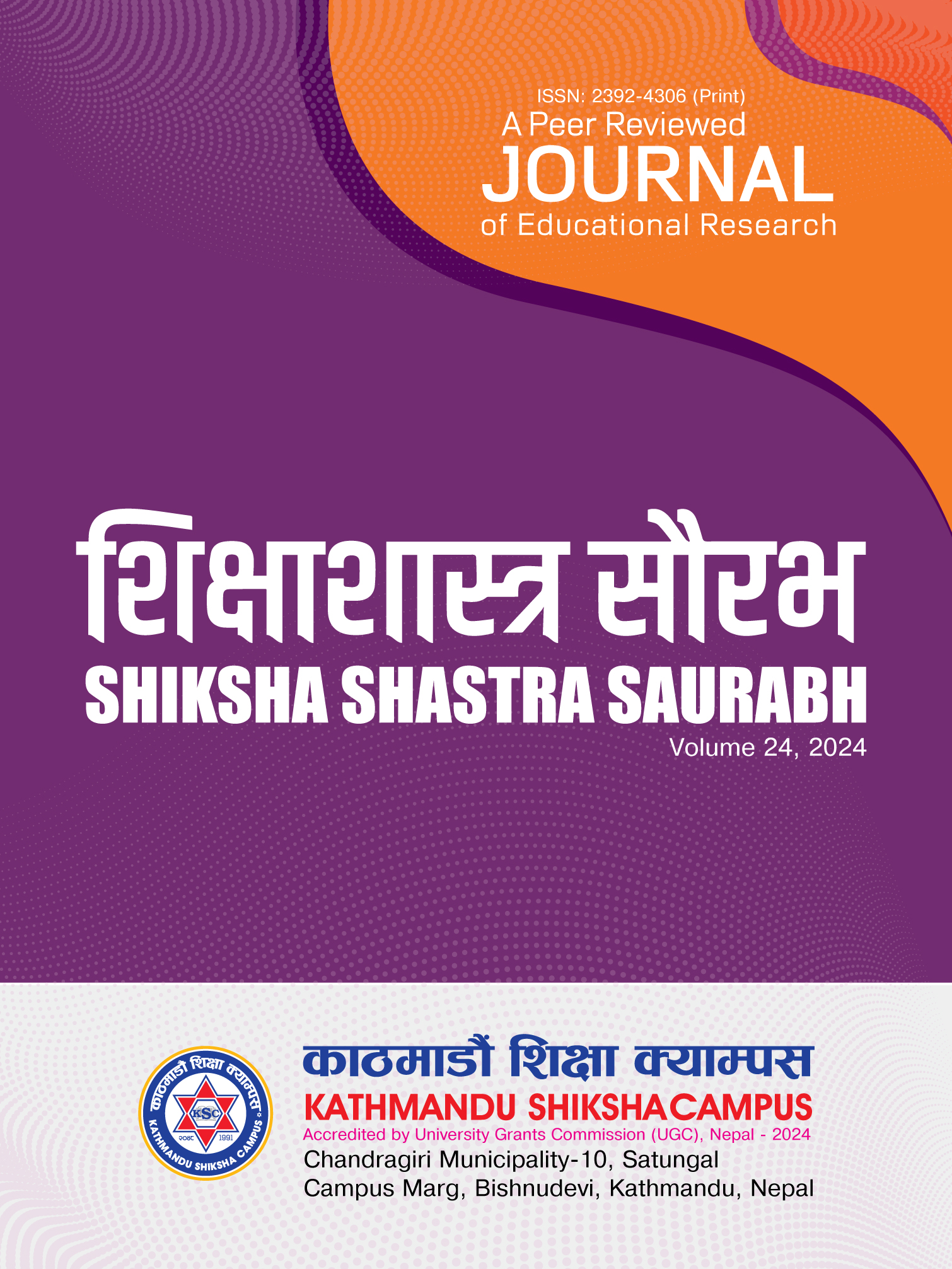Assessing Teachers’ Cognition on the Concepts and Practices of Inclusive Classroom
DOI:
https://doi.org/10.3126/sss.v24i1.75379Keywords:
Inclusive education, teacher’s understanding, nowledge of teachers, training, managing diverse classroomsAbstract
This article explores teachers’ cognition on inclusive classrooms and examines their levels of knowledge. The data for the study were collected from 170 participants, representing different regions, educational levels, and areas of expertise. The research examined demographic distribution, training experiences, and views on inclusive education concepts and practices. Data from 170 participants show that 63.6% had received basic inclusive education training, but only 18.3% perceived inclusion as meeting all student needs, highlighting substantial gaps in understanding. Confidence in implementing inclusive practices was minimal, with only 2.9% expressing “very confident”. Barriers such as inadequate administrative support (38.2%) and lack of resources (35.3%) were major barriers. Despite these concerns, 74.1% of teachers agreed with the benefits of inclusive education, indicating its widespread acceptance. The results support the idea that trained teachers are better able to handle diverse classrooms. The article highlights the need for improved professional development, systematic support, and resource distribution to bridge knowledge gaps and increase confidence to promote successful inclusive practices.
Downloads
Downloads
Published
How to Cite
Issue
Section
License
© Research Management Cell (RMC), Kathmandu Shiksha Campus

